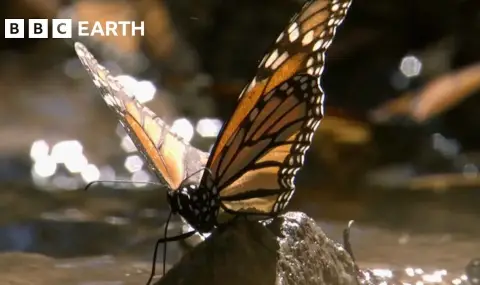An elderly collector in Kenya is looking for a person or organization to bequeath his collection of 4.2 million butterflies for permanent care, the AP reports, quoted by bTV.
What began as a childhood hobby more than six decades ago has led to the creation of the largest butterfly collection in Africa. Steve Collins, 74, was born and raised in western Kenya. He was fascinated by butterflies at the age of 5 and began amassing a collection that has grown to over 4.2 million specimens, representing hundreds of species.
“My parents encouraged us to look for butterflies after we visited the Congo, and some friends gave us a net to catch them“, Collins says, adding: “By the time I was 15, I was visiting other countries like Nigeria to learn more about butterflies.“
During his 20-year career as an agronomist, Collins devoted his free time to scientific research. In 1997, he founded the African Butterfly Research Institute. Now that he has run out of space and time for his collection, he hopes to pass it on to the next generation.
On his 0.6-hectare plot of land, hundreds of native trees and flowering shrubs form a dense forest. Hundreds of butterflies dance from flower to flower, sometimes landing on Collins' hand.
His collection is private, although it was initially open to the public while it operated as an education center between 1998 and 2003.
Collins has 1.2 million butterflies from all over Africa, delicately mounted in frames and stored on rows of shelves. He keeps another 3 million in envelopes.
“Butterflies need to be stored in dark rooms”, he explains, adding: “The storage method also ensures that the dried butterflies won't be eaten by other insects, parasites and predators – insecticides are applied once a year to protect them“.
The dark continent is vulnerable to climate change, with periods of prolonged drought and severe flooding destroying forests and other butterfly habitats.
Baileys suggests the collection be digitized to make it accessible worldwide. Whoever takes it over “should be an institution that is well-founded, well-funded and secure”, he said.
Collins fears he will soon be unable to sustain his research. He said his most valuable butterfly is worth $8,000 – he deliberately keeps it off display for fear of theft.
Collins hopes to sell his collection to a private individual or a research institution. The cost of maintaining his collection is high. The annual budget, published in 2009 on the website of the Lepidopterists' Society of Africa, is US$200,000.
Collins estimates that the specimens and other assets in the collection are worth US$8 million.
“This has been my hobby for decades and I can't put a price on what I've done so far. "I'm currently working to ensure that the butterflies are in safe hands when I leave this world," Collins concluded.
